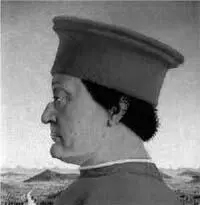Boy, was I wrong. It turns out that looking at things from other people's point of view is practically the secret of success.
Empathy doesn't necessarily mean being self-sacrificing. Far from it. Understanding how someone else sees things doesn't imply that you'll act in his interest; in some situations—in war, for example— you want to do exactly the opposite.
Most makers make things for a human audience. And to engage an audience you have to understand what they need. Nearly all the greatest paintings are paintings of people, for example, because people are what people are interested in.
Empathy is probably the single most important difference between a good hacker and a great one. Some hackers are quite smart, but practically solipsists when it comes to empathy. It's hard for such people to design great software, because they can't see things from the user's point of view.
One way to tell how good people are at empathy is to watch them explain a technical matter to someone without a technical background. We probably all know people who, though otherwise smart, are just comically bad at this. If someone asks them at a dinner party what a programming language is, they'll say something like "Oh, a high-level language is what the compiler uses as input to generate object code." High-level language? Compiler? Object code? Someone who doesn't know what a programming language is obviously doesn't know what these things are, either.
Part of what software has to do is explain itself. So to write good software you have to understand how little users understand. They're going to walk up to the software with no preparation, and it had better do what they guess it will, because they're not going to read the manual. The best system I've ever seen in this respect was the original Macintosh, in 1984. It did what software almost never does: it just worked.
Source code, too, should explain itself. If I could get people to remember just one quote about programming, it would be the one at the beginning of Structure and Interpretation of Computer Programs.
Programs should be written for people to read, and only incidentally for machines to execute.
Figure 2-2. Piero della Francesca's Federico da Montefeltro, 1465-66 (detail).

You need to have empathy not just for your users, but for your readers. It's in your interest, because you'll be one of them. Many a hacker has written a program only to find on returning to it six months later that he has no idea how it works. I know several people who've sworn off Perl after such experiences.
Lack of empathy is associated with intelligence, to the point that there is even something of a fashion for it in some places. But I don't think there's any correlation. You can do well in math and the natural sciences without having to learn empathy, and people in these fields tend to be smart, so the two qualities have come to be associated. But there are plenty of dumb people who are bad at empathy too.
So, if hacking works like painting and writing, is it as cool? After all, you only get one life. You might as well spend it working on something great.
Unfortunately, the question is hard to answer. There is always a big time lag in prestige. It's like light from a distant star. Painting has prestige now because of great work people did five hundred years ago. At the time, no one thought these paintings were as important as we do today. It would have seemed very odd to people in 1465 that Federico da Montefeltro, the Duke of Urbino, would one day be known mostly as the guy with the strange nose in a painting by Piero della Francesca.
So while I admit that hacking doesn't seem as cool as painting now, we should remember that painting itself didn't seem as cool in its glory days as it does now.
What we can say with some confidence is that these are the glory days of hacking. In most fields the great work is done early on. The paintings made between 1430 and 1500 are still unsurpassed. Shakespeare appeared just as professional theater was being born, and pushed the medium so far that every playwright since has had to live in his shadow. Albrecht Dürer did the same thing with engraving, and Jane Austen with the novel.
Over and over we see the same pattern. A new medium appears, and people are so excited about it that they explore most of its possibilities in the first couple generations. Hacking seems to be in this phase now.
Painting was not, in Leonardo's time, as cool as his work helped make it. How cool hacking turns out to be will depend on what we can do with this new medium.
Chapter 3. What You Can't Say
Have you ever seen an old photo of yourself and been embarrassed at the way you looked? Did we actually dress like that? We did. And we had no idea how silly we looked. It's the nature of fashion to be invisible, in the same way the movement of the earth is invisible to all of us riding on it.
What scares me is that there are moral fashions too. They're just as arbitrary, and just as invisible to most people. But they're much more dangerous. Fashion is mistaken for good design; moral fashion is mistaken for good. Dressing oddly gets you laughed at. Violating moral fashions can get you fired, ostracized, imprisoned, or even killed.
If you could travel back in a time machine, one thing would be true no matter where you went: you'd have to watch what you said. Opinions we consider harmless could have gotten you in big trouble. I've already said at least one thing that would have gotten me in big trouble in most of Europe in the seventeenth century, and did get Galileo in big trouble when he said it—that the earth moves.
Nerds are always getting in trouble. They say improper things for the same reason they dress unfashionably and have good ideas. Convention has less hold over them.
It seems to be a constant throughout history: in every period, people believed things that were just ridiculous, and believed them so strongly that you would have gotten in terrible trouble for saying otherwise.
Is our time any different? To anyone who has read any amount of history, the answer is almost certainly no. It would be a remarkable coincidence if ours were the first era to get everything just right.
It's tantalizing to think we believe things that people in the future will find ridiculous. What would someone coming back to visit us in a time machine have to be careful not to say? That's what I want to study here. But I want to do more than just shock everyone with the heresy du jour. I want to find general recipes for discovering what you can't say, in any era.
3.1. The Conformist Test
Let's start with a test: do you have any opinions that you would be reluctant to express in front of a group of your peers?
If the answer is no, you might want to stop and think about that. If everything you believe is something you're supposed to believe, could that possibly be a coincidence? Odds are it isn't. Odds are you just think whatever you're told.
The other alternative would be that you independently considered every question and came up with the exact same answers that are now considered acceptable. That seems unlikely, because you'd also have to make the same mistakes. Mapmakers deliberately put slight mistakes in their maps so they can tell when someone copies them. If another map has the same mistake, that's very convincing evidence.
Like every other era in history, our moral map almost certainly contains mistakes. And anyone who makes the same mistakes probably didn't do it by accident. It would be like someone claiming they had independently decided in 1972 that bell-bottom jeans were a good idea.
Читать дальше













